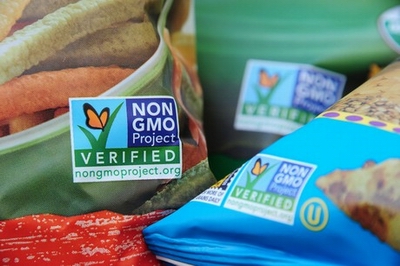
The foes of genetic engineering hope America's experience will mirror Europe's. GMO food is legal, there, but it has to be labeled, and marketers are wary of consumer backlash. So GMO foods are rare. But America isn't Europe. For one thing, Americans have been eating GMO foods since 1996, without strange side effects. Critics say GMOs haven't been tested enough, but the verdict of mainstream science is that they're safe to eat. Just last month, Scientific American ran emphasizing this point and decrying "unfounded fears."
Even Michael Pollan agrees on that front. "I haven't seen any evidence that's persuaded me that there's any danger to health," says the food journalist, who's become a kind of hero for the organic and local-food movements. He doesn't like GMOs, and he's quick to add that he thinks they need more testing. But he says arguments about possible health effects miss the larger point. "I don't think this is a fight about science, he says. "I think it's a fight about transparency — people who want to know where their food comes from should have this information."
One other thing to keep in mind is that the U.S. already has a de facto "Non-GMO" label: organic. Organic foods may not contain any genetically modified organisms. It may turn out that the consumers who would avoid GMO labels have already taken their business to Whole Foods.
Proponents of mandatory labeling say that's not enough. Andrew Stout, founder of farm, an organic produce company outside Seattle, says people who don't have access to organic food — or can't afford it — still deserve to know whether they're eating GMOs. "It's no different than just having sodium, salt, artificial flavors and artificial colors, country of origin," Stout says. "Consumers look for that kind of information and make their own individual choices."
But genetic engineering is different. It's not an ingredient — it's a technique. Genetic modifications can change plants and animals in any number of ways: Corn modified to resist a certain weed killer is not the same as rice that's been reprogrammed to contain more vitamin A. They're beneficial — or risky — in completely different ways. Mandatory labels might mislead consumers to lump all GMOs together.
Opponents of mandatory labeling say the extra effort would increase the price of food by an average of $450 a year, for a family of four. While an by the Washington State Academy of Sciences agreed that labeling would come with a cost, it noted that it's impossible to calculate how much that cost would be.
Given the prevalence of GMO ingredients in American food, some manufacturers may skip the cost of keeping things segregated, and simply slap a GMO label on everything. That option may become especially attractive if it turns out consumers aren't put off by the label. (You know those err-on-the-side-of-safety warnings about candy bars that are made in a facility that also processes nuts? Just substitute "GMO" for nuts, and you see where this might go.)
"The psychological research ... suggests that when you give people choice over risk, they're less afraid of it," says , a writer who specializes in how people assess risk. "Assuming that [the label] was something short of a skull and crossbones, it's likely that many people would accept it and say, 'Fine, I'll buy it!' "
If you doubt it, he says, then think about all the other things that come with scary labels — things you end up buying anyway.





